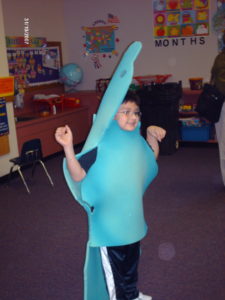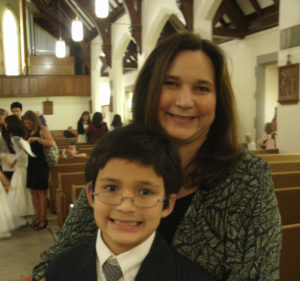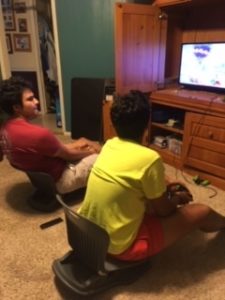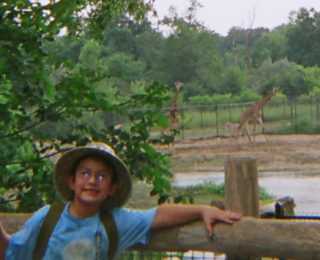An Interview with DeeDee Velasquez-Peralta, LMSW
DeeDee began her journey as a social worker working with children and adults with disabilities, developing behavioral support plans to help them successfully be integrated into mainstream classrooms and into their communities. She then started working in healthcare were she utilized a strength-based approach to psychosocial assessments and individualized care plans for patients who experienced traumas requiring rehabilitation to those diagnosed with chronic kidney disease. DeeDee has developed programs and resources that have been shared nationally for their innovation and successful approach to patient engagement and quality improvement. She is married and has two sons.
Part II
Navigating the Waters of ASD
“Not knowing-Our visions of Autism were more severe-It wasn’t across the spectrum”
TLJ: What services did Rosario receive when he was finally diagnosed with ASD?
DVP: At the time, Rosario was mainstreamed into a full day Kindergarten program. This is where he received his first IEP, Independent Education Plan, which included:
- Special education in the classroom
- A para-professional in the classroom
- Speech therapy
- Occupational therapy
- Case manager on an as needed basis
- Parental local support from the Autism Society
“By the end of kindergarten, he was speaking in full sentences and started to read”
They did not offer social skill groups as part of his services, so we continued with the social skills groups we had previously sought out for him.
TLJ: Were there any particular challenges that stand out to you when Rosario was integrated into elementary school?
“Handling his emotions has been a challenge”
DVP: Once he got his language down, Rosario had no problem speaking in front of people and telling them what was on his mind. But handling his emotions has always been a challenge. Like many young children, his thinking was concrete and that flowed into how he handled his emotions. He was happy, sad, or angry. There was no grey area.
“It was traumatic for him and he didn’t understand it. He was confused”
In third grade, Rosario got asked to leave the school because of a behavioral issue. He had a physical response to another child. The school’s special education coordinator, who was wonderful, was on medical leave. His teacher didn’t quite know how to handle the situation. The children were fine, but it was blown way out of proportion. It was unfortunate for everyone involved.
TLJ: What was most important in helping Rosario learn to deal with his emotional regulation?
“He doesn’t learn that way”
DVP: We had to teach him about emotional regulation, and how to respond to other’s emotions. We had him in as many types of social skills groups as possible. Kids pick up on things by what is modeled to them. But Rosario doesn’t learn that way. As parents, we have to be very specific. We had to do a lot of advocating for him with his team at school.
The speech pathologist who would deal with communication only dealt with his physical ability to speak. That was not his issue anymore. He needed social communication tools. These tools would help him with his emotional regulation.We had to teach his teachers. Giving them the appropriate tools to handle these types of situations. We also had to make monthly modifications to his IEP. It is not easy. I have lot of respect for teachers and all the different types of challenges they face in the classroom.
TLJ: What were Rosario’s favorite hobbies or activities when he was growing up?
DVJ: Rosario is a big reader. He will read several books at a time. He reads fast and has a great memory; everything from Tolkien to Marvel comics. Rosario had phases of extreme interests such as animals, the avengers, pokemon, video games, and video game characters.
“He has an incredible memory for facts”
Rosario was in a special-needs karate class for two years when he was in elementary school. He stopped attending when they began actual physical contact. Because of his concrete thinking – “the rule is you can’t hit” – so we had to find another physical activity for him which ended up being wrestling. The sport helped him with regulating his emotions. Our motto was if you don’t win, you learn. He wrestled club through his freshman year of high school. And Rosario wrestled on his high school team. Unfortunately, he got a concussion during his last match. He decided not to continue wrestling, which left him with time to pursue one of his other passions, gaming.
“If you don’t win, you learn”
TLJ: What types of gaming activities did Rosario pursue?
His junior year of high school Rosario started a gamer’s club where they would play video games and board games (character board games). He went through the whole process of getting two teachers to sponsor the club. Rosario became the president of the club and a couple of his buddies helped him organize everything. He made a good group of friends through The Gamer’s Club.
——-
DeeDee,
Thank you for sharing your story.
We look forward to learning more.




